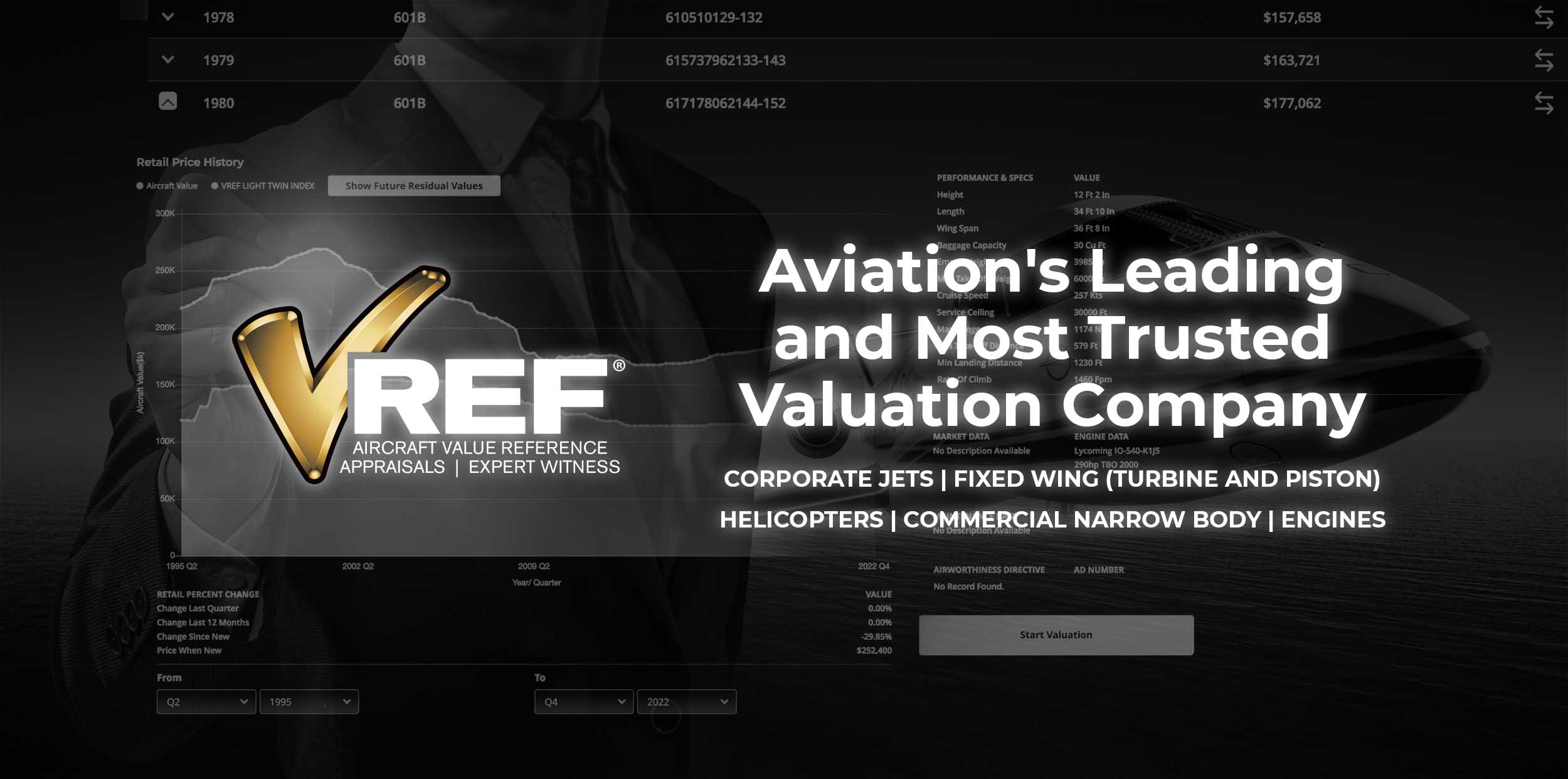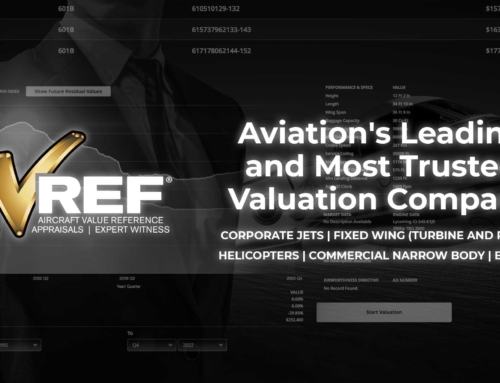Don’t be fooled – owning a private plane versus chartering one requires completely different levels of responsibility for passengers, aircraft owners, and charter companies. From incident liability and insurance coverage to conducting routine maintenance and timely inspections, remaining proactive as an aircraft owner is critical to operating an aircraft safely and efficiently.
The best way to answer this question is by going back and asking what you need from a private aircraft. Ask probing questions to get to the root of your needs:
- How frequently will I need an aircraft for travel?
- How far do I typically travel?
- What is my budget for both buying an aircraft and maintaining it with ongoing operating costs?
- What do I want from my aircraft purchase as far as amenities and comfort?
Dive into the pros and cons associated with both roles of owning versus chartering an aircraft.
Explore VREF’s aircraft appraisal services.
Pros & Cons Of Private Jet Ownership Versus Chartering
On a high level, you can expect the following pros and cons of aircraft ownership:
| Aircraft Ownership Pros | Aircraft Ownership Cons |
|
|
Yes, owning your aircraft gives you an unmatched level of freedom, but freedom has its price – one that includes ensuring the safety of everyone onboard and at ground level. This is especially prevalent with recent news.
Access Your Aircraft When You Need It
The aircraft is more accessible to you as the owner since you’re on your schedule. This is a huge win for individuals and businesses required to travel far and frequently. Holiday weekend or not, your aircraft is yours to travel as you please.
Keep Up With Owner Responsibilities
Aircraft owners are also responsible for maintaining aircraft operations including:
- Prioritize safety for passengers and crew
- Acquire and maintain adequate insurance coverage
- Crew hiring and management
- Equipment and engine part repairs and replacements
- Keep accurate logs of flights, maintenance, and expenses
- Maintain compliance with all aviation regulations and requirements
- Manage fuel supply and costs efficiently
- Regular inspections and maintenance
- Secure a safe place to hangar aircraft
- Update aircraft logbooks regularly and accurately
Offloading these responsibilities is why individual aircraft owners choose to charter their aircraft or enroll it into Power-By-The-Hour and Engine Maintenance Programs.
Preserve The Value Of Your Aircraft
You won’t find “investment opportunity” anywhere on the list as buying an aircraft to expand investment potential isn’t recommended. There are simply too many ever-evolving factors to consider when deciding to own a private aircraft, with safety first as a defining one.
For comparison’s sake, Swiss-made Rolex is well-regarded as a long-term investment. Since 1905, Rolex has established itself in jewelry and collectibles, with prices rising by an average of 4-12% annually, depending on the model.
Thinking of a Rolex watch helps when understanding that while it seems to appreciate well, it only truly matters to the person wearing it. An aircraft is much more than a luxurious lifestyle addition, so owning an aircraft should be viewed differently since it has the potential to impact the lives and safety of the general public – not just aircraft owners.
RELATED READ: What Do Power-By-The-Hour and Engine Maintenance Programs Mean In Aviation?
Chartering An Aircraft Pros & Cons
On a high level, you can expect the following pros and cons of chartering an aircraft:
| Aircraft Charter Pros | Aircraft Charter Cons |
|
|
Enjoy Cost-Effective Flying
Chartering aircraft offers the benefits of private travel without the long-term commitment. When financially planning for your business alongside financial professionals, value chartering for the convenience and flexibility it provides. Chartering an aircraft also offers a diverse range of aircraft to choose from for your upcoming flight. Remember, the more often you travel, the higher the costs can become – limiting sustainable savings over time.
Plan For Limited Aircraft Availability
Chartering aircraft provides flexibility, but it also comes with limitations. When you don’t own the aircraft, you have no guarantee or control over its availability. Additionally, you may face less control over your schedule, as last-minute changes can and will happen regarding aircraft availability.
Leave Ownership Responsibilities Behind
One of the main reasons individuals opt for chartering is to offload the responsibilities that come with ownership. This includes ensuring safety, maintaining compliance with aviation regulations, and managing operational logistics. By choosing to charter, you can focus on your travels rather than aircraft management.
Critical Insights To Weighing Aircraft Ownership Against Chartering
Before deciding whether to own or charter your aircraft, you should evaluate your:
- Travel frequency
- Aircraft budget
- Desired features and amenities
While ownership offers convenience and flexibility, the chance of incurring high costs and management duties is ever-present. On the other hand, chartering provides a cost-effective alternative without the burdens of ownership, though it may limit availability and scheduling control. Ultimately, the decision between owning and chartering depends on individual travel needs and priorities.
Connect With A VREF Expert For Current & Historical Aircraft Data Across All Categories
An aircraft appraisal assists you throughout the buying process and beyond. Especially if you’re concerned about getting adequate insurance coverage or ensuring your financial plans are based on a solid foundation, getting a comprehensive aircraft appraisal is the right place to start.
Contact an ASA Accredited Senior Appraiser today.
The information provided on this website does not, and is not intended to, constitute legal advice; instead, all information, content, and materials available on this site are for general informational purposes only.




